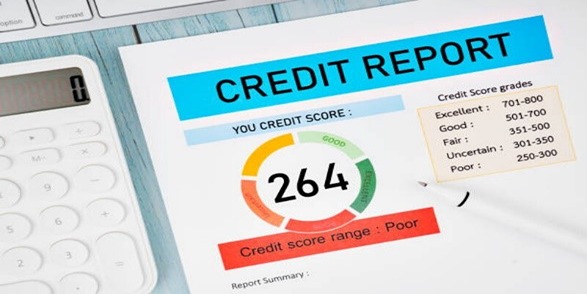Understanding your credit standing is vital in today's financial landscape. A credit report is a snapshot of your financial behavior, and it significantly influences your financial opportunities. Whether you're applying for a loan, renting an apartment, or even securing a job, your credit report matters. As such, it's crucial to regularly review your credit reports from the three major credit bureaus: Equifax, Experian, and TransUnion. Luckily, obtaining these reports can be done for free, thanks to federal laws. This guide aims to walk you through the process of accessing your free credit reports, ensuring you stay informed about your financial health.
Understanding Credit Reports

Before diving into the process of obtaining your credit reports, it's essential to understand what these reports entail. A credit report is a detailed record of your financial history. It contains information such as your personal details, credit accounts (such as credit cards and loans), payment history, outstanding debts, and recent inquiries made by lenders or landlords. Lenders use this information to assess your creditworthiness and determine the terms of any credit they may offer you.
Why Should You Regularly Check Your Credit Reports?
Checking your credit reports regularly is crucial because it allows you to keep track of your financial standing. By reviewing this information, you can identify any errors or fraudulent activity that could be impacting your credit score negatively. Catching and correcting these issues in a timely manner can prevent significant financial consequences in the future.
Additionally, checking your credit reports helps you understand how your financial behavior affects your credit score. By analyzing your payment history and current debts, you can identify areas for improvement and take steps towards building a better credit profile.
Role of the major credit bureaus in credit reporting
The three major credit bureaus, Equifax, Experian, and TransUnion, are responsible for collecting and maintaining your credit information. While each bureau may have slightly different data on file, their reports should contain similar information due to federal regulations. These bureaus also use a scoring model to calculate your credit score based on the data in your credit report.
How to Obtain Your Free Credit Reports?
Now that you understand the importance of checking your credit reports, let's dive into how you can obtain them for free. Under federal law, each credit bureau must provide consumers with one free credit report per year upon request. Here's how you can access yours:
- Visit AnnualCreditReport.com – This is the only website authorized by the federal government to provide free credit reports. Avoid other websites that claim to offer free reports as they may require you to sign up for a trial service or pay hidden fees.
- Select which bureau's report you wish to obtain – You can choose to receive all three at once or stagger them throughout the year.
- Provide your personal information - This includes your name, address, date of birth, and social security number.
- Verify your identity – You may be asked to verify information from your credit report or answer security questions.
- View and download your credit reports – The reports will be available for immediate viewing and downloading. You can also choose to have them mailed to you if you prefer.
What to Look For in Your Credit Reports
When reviewing your credit reports, make sure to check for the following information:
- Personal Information – Verify that all personal details such as your name, address, and social security number are accurate.
- Credit Accounts – Check that all active accounts listed on your report belong to you. If you have closed an account, ensure it is marked as closed.
- Payment History – Make sure all payments are accurately reported and there are no late payments or missed payments that shouldn't be there.
- Debts – Verify the outstanding balances on any loans or credit accounts listed. If you notice an incorrect balance, it could affect your credit score.
- Inquiries – Check for recent inquiries made by lenders or landlords. Too many inquiries in a short period can lower your credit score.
Common terms found in credit reports
As you review your credit reports, you may come across some terms that are unfamiliar. Here are a few common terms and their definitions to help you understand your report better:
- Credit score – A numerical representation of your creditworthiness based on the information in your credit report.
- FICO score – The most commonly used scoring model by lenders. It ranges from 300-850, with a higher score indicating better credit.
- Credit utilization – The percentage of your available credit that you are currently using. A high credit utilization can negatively impact your credit score.
- Hard inquiry – An inquiry made by a lender or landlord when you apply for credit. Too many hard inquiries in a short period can lower your credit score.
- Soft inquiry – An inquiry that does not affect your credit score and is typically made by companies for promotional purposes or when you check your own credit report.
What to Do If You Find Errors on Your Credit Report?

If you discover any errors on your credit report, it's important to take action immediately. Here are steps you can take to correct any mistakes:
- Contact the credit bureau – Reach out to the bureau that provided the inaccurate information and file a dispute.
- Provide evidence – Gather any documents or proof that support your claim and provide them to the bureau.
- Contact the creditor – If the inaccurate information is related to a specific account, you can also contact the creditor directly and request that they update their records.
- Follow up – Allow some time for the dispute to be processed, and follow up with the credit bureau if necessary to ensure the error has been corrected.
Conclusion
Regularly checking your credit reports is an essential part of managing your financial health. By staying informed about your credit standing, you can identify and correct any errors or fraudulent activity that may be affecting your credit score. Remember to obtain your free credit reports from AnnualCreditReport.com and review them thoroughly for any discrepancies. If you do find mistakes, take immediate action to dispute and correct them. By monitoring your credit reports and actively working towards improving your credit behavior, you can maintain a good credit score and avoid any potential financial consequences in the future. So, make it a habit to check your credit reports at least once a year and take control of your financial well-being.




